Related Research Articles
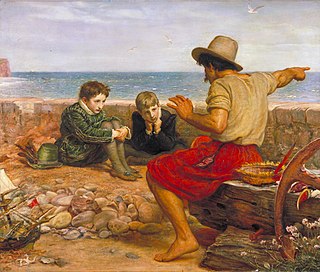
Storytelling is the social and cultural activity of sharing stories, sometimes with improvisation, theatrics or embellishment. Every culture has its own stories or narratives, which are shared as a means of entertainment, education, cultural preservation or instilling moral values. Crucial elements of stories and storytelling include plot, characters and narrative point of view. The term "storytelling" can refer specifically to oral storytelling but also broadly to techniques used in other media to unfold or disclose the narrative of a story.
The Southern Ohio Storytelling Festival is an annual storytelling festival held Thursday through Saturday after Labor Day in Chillicothe, Ohio. Local, regional and nationally known storytellers are invited to perform their favorite stories for thousands of school children and storytelling enthusiasts. A board of community volunteers and local/regional storytellers makes up the 503(c) non-profit organization that is responsible for organizing and overseeing the festival.
Biblical storytelling is a discipline in which the storyteller takes a passage from the Bible, studies and reflects on that passage, and then tells it in a way so that the hearers may best connect with the story as well.

World Storytelling Day is a global celebration of the art of oral storytelling. It is celebrated every year on the March equinox, on March 20. On World Storytelling Day, as many people as possible tell and listen to stories in as many languages and at as many places as possible, during the same day and night. Participants tell each other about their events in order to share stories and inspiration, to learn from each other and create international contacts.
The Yukon International Storytelling Festival was held every Summer in Whitehorse, Yukon, generally in an outdoor setting. Cofounders of the storytelling festival were storytellers Louise Profeit-Leblanc and Anne Taylor. Profeit-Leblanc, from the Northern Tutchone Nation, was the niece of Angela Sidney, one the Yukon's last Tagish. Sidney had devoted her life to preserving the stories of the Tagish of Southern Yukon, Profeit-Leblanc and Taylor were motivated to found a more local venue for sharing Yukon stories when they realized that Sidney had had to travel in 1984 to the Toronto Festival of Storytelling to disseminate her peoples' stories to a world audience. In 1987 interested parties came together to plan the first Yukon Storytelling Festival in 1988. It later grew beyond the scope of Yukon and Canada to attract storytellers from all over the world with an emphasis on native peoples storytelling and circumpolar countries.
The Timpanogos Storytelling Festival takes place the weekend after Labor Day at the end of each summer in Lehi, Utah. The festival draws a combined attendance of about 26,000 people each year, making it one of the largest storytelling festival in the United States. The festival typically lasts two days and invites professional storytellers from throughout the United States. In addition to daytime performances on Friday and Saturday, there are typically themed public performances in the evenings, such as Look Who's Talking, Bedtime Stories, My Favorite Stories, and Laughing' Night.
Australia traditional storytelling, handed down from generation to generation, has always been part of the landscape. Since the beginning of time storytelling played a vital role in Australian Aboriginal culture, one of the world's oldest cultures. Aboriginal children were told stories from a very early age; stories that helped them understand the air, the land, the universe, their people, their culture, and their history. Elders told stories of their journeys and their accomplishments. As the children grew into adults they took on the responsibility of passing on the stories. These stories are as much a cultural necessity as they are entertainment and are still passed on orally though many are now recorded in print, audio and video

Oral storytelling is an ancient and intimate tradition between the storyteller and their audience. The storyteller and the listeners are physically close, often seated together in a circular fashion. The intimacy and connection are deepened by the flexibility of oral storytelling which allows the tale to be molded according to the needs of the audience and the location or environment of the telling. Listeners also experience the urgency of a creative process taking place in their presence and they experience the empowerment of being a part of that creative process. Storytelling creates a personal bond with the teller and the audience.
The Crick Crack Club is a UK-based performance storytelling promoter, founded in 1987. It programs and tours public performances in theatres and art centers nationally, trains and mentors storytellers, undertakes research and advises on the use of oral storytelling in museums and educational settings.

Hugh Morgan Hill, also known as Brother Blue, was an American educator, storyteller, actor, musician, and street performer based principally in the Boston area. After serving as First Lieutenant from 1943 to 1946 in the segregated United States Army in World War II and being honorably discharged, he received a BA from Harvard College in 1948, was accepted into the Harvard Graduate School of Arts and Sciences (GSAS) before transferring to receive a MFA from the Yale School of Drama and a Ph.D. from the Union Institute. While performing frequently at U.S. National Storytelling Festivals and flown abroad by organizations and patrons from England to Russia and the Bahamas, Brother Blue regularly performed on the streets around Cambridge, most notably in Harvard Square. He was the Official Storyteller of Boston and of Cambridge by resolutions of both city councils.
American Sign Language literature is one of the most important shared cultural experiences in the American deaf community. Literary genres initially developed in residential Deaf institutes, such as American School for the Deaf in Hartford, Connecticut, which is where American Sign Language developed as a language in the early 19th century. There are many genres of ASL literature, such as narratives of personal experience, poetry, cinematographic stories, folktales, translated works, original fiction and stories with handshape constraints. Authors of ASL literature use their body as the text of their work, which is visually read and comprehended by their audience viewers. In the early development of ASL literary genres, the works were generally not analyzed as written texts are, but the increased dissemination of ASL literature on video has led to greater analysis of these genres.
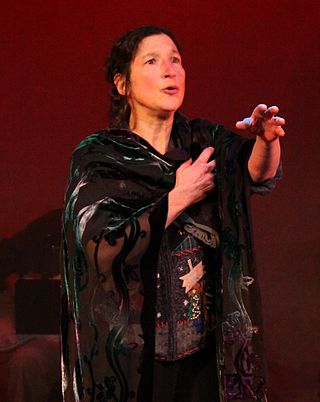
Judith Black is an American professional storyteller, who has toured internationally, telling stories to a wide ranging audience in the United States, Europe, and the Near East. She has produced thirteen CDs, and won a variety of awards, such as the coveted Oracle Award. Her work has been featured in venues such as the Smithsonian Institution and the Montreal Comedy Festival, and has been featured seven times at the National Storytelling Festival. In addition she has produced a variety of seminars and workshops for storytellers. She has been commissioned by the U.S. Department of the Interior, National Public Radio, religious institutions, and non-profit organisations to create original stories that strengthen their respective missions.
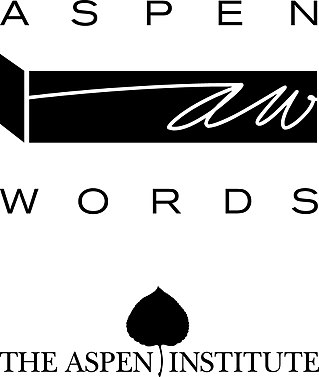
Aspen Summer Words (ASW) is a festival of words, stories and ideas held each June in Aspen, Colorado. It is the flagship program of Aspen Words, a literary arts non-profit and program of the Aspen Institute. Until 2015, Aspen Words was known as the Aspen Writers' Foundation.

Settle Stories is a registered charity and company founded in 2011 by Sita Brand, following the running of the Settle Storytelling Festival in 2010. The charity seeks to promote storytelling for individuals, communities and organisations.
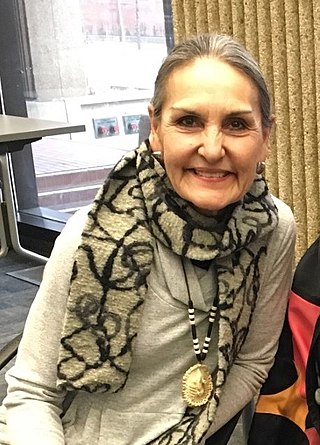
Louise Profeit-LeBlanc is an Aboriginal storyteller, cultural educator artist, writer, choreographer, and film script writer from the Northern Tutchone Nation, Athabaskan language spoken in northeastern Yukon in Canada. She was raised in Mayo.
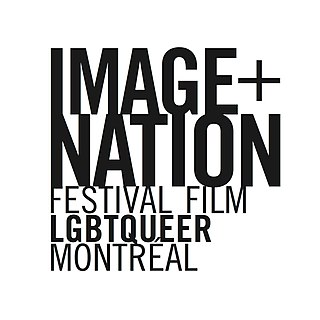
image+nation. LGBTQueer Montreal is an annual eleven-day film festival, which takes place in Montreal, Quebec, Canada. Held in November each year, the festival is dedicated to sharing the stories and experiences of LGBTQ+ people and is the first festival of its kind in Canada.

The Maratón de los Cuentos is an oral narration that takes place every year in the palacio del Infantado de Guadalajara (Spain) during the second or third weekend of June. The festival gather storytellers or cuentacuentos from around the world who narrate uninterruptedly stories over the weekend. Started in 1992, the Maratón de los Cuentos of Guadalajara is celebrated every year since then. It reached its twentieth edition in 2011 achieving 46 hours of storytelling without interruption. It brings together 200 volunteers who help develop more than 70 activities.

Pleasant DeSpain is an international storyteller, world traveler, and author of multicultural story collections and picture books, many of which are used in elementary schools and libraries as multicultural teaching aids. He has performed in more than 3,000 schools, theaters, conventions, libraries, and churches in America, Canada, Mexico, Thailand, Southeast Asia, and Central America.
Linda Goss, sometimes known professionally as Mama Linda, is an American storyteller and performer in the African diasporic oral tradition. She is a co-founder of the National Association of Black Storytellers, which works to preserve folk traditions.

Rita Marjorie Cox is a storyteller, community leader and retired librarian based in Toronto, Ontario. As the head of the Parkdale branch of the Toronto Public Library, she pioneered services that promoted multiculturalism and literacy. She was awarded the Order of Canada for storytelling, and her legacy extends to her role as a leader in Caribbean and Black communities. A library collection, park, and school are named after Cox in Toronto.